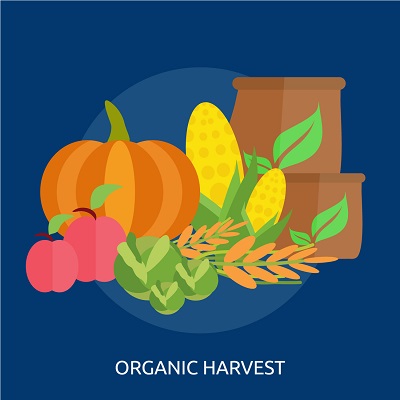 You might wonder why more and more people are going for a meatless diet. You might think these people had to endure eating bland food made of leaves and stalks, but you would be surprised to find that a plant-based diet is as diverse as meat-eating in terms of flavor without all the saturated fat.
You might wonder why more and more people are going for a meatless diet. You might think these people had to endure eating bland food made of leaves and stalks, but you would be surprised to find that a plant-based diet is as diverse as meat-eating in terms of flavor without all the saturated fat.
Besides, going meatless might help reduce your risk of cancer.
You might hear other people join the meatless diet bandwagon because of their strong passion for preserving animal life. However, many other people are joining too after recognizing the health benefits it provides backed by scientific proofs.
A vegetarian diet is not only nutrient sufficient. Numerous studies say it is a natural way to reduce risks or treat numerous chronic diseases, such as type II diabetes, heart disease, hypertension, and cancer.
A healthy diet plays a huge role in reducing your risk of cancer consequently an unhealthy diet can increase your risk of developing cancer. According to Cancer Research UK, an unhealthy diet increases your risk of these six cancer types:
- Mouth Cancer
- Upper Throat Cancer
- Larynx Cancer
- Lung Cancer
- Stomach Cancer
- Bowel Cancer
What makes an unhealthy diet that makes you at risk of cancer? Evidence gathered through research proved that high consumption of red meat and or processed meats is the major culprit especially for the development of bowel cancer.
Red meats including beef, lamb, and pork are good sources of important nutrients such as iron, protein, vitamin B12 and iron. However, these meats have high contents of haem, a naturally occurring substance that gives red meat its color.
Studies show that haem stimulates the formation of compounds with carcinogenic effects. Moreover, cooking red meat at high temperatures triggers the release of compounds, heterocyclic amines and polycyclic aromatic hydrocarbons, which can increase the risk of bowel cancer in people who are genetically susceptible to develop it.
Processed red meats such as bacon, ham, salami and sausages are even worse. As mouth-watering as they are, these processed foods contain fewer nutrients and are loaded with preservatives. The chemicals added to prolong their shelf-life contain nitrates or nitrites which can convert into compounds that cause cancer.
Consumption of red meat and processed meats can also indirectly make you at risk of cancer. Did you know that obesity is next to smoking as top cancer risk factor? Red meats and processed meats are high in saturated fat and sodium. Eating too much of these foods can make you gain extra weight.
Apart from these types of cancer, the National Cancer Institute states that women who consume meat daily are four times more likely to develop breast cancer than those who do not. Meanwhile, Harvard Nurses Health Study says that women who eat at least one serving of vegetables a day are 20 to 30 percent less likely to develop breast cancer.
You don’t have to completely get rid of meat in your diet. Experts say cutting down on portions, slicing of the meat fats, eating white meats than red meat and practicing healthy cooking methods help you get the nutrients your body needs while keeping cancer risk in check.
Consumption of meat along with higher consumption of fruits, vegetables, and whole grains cut cancer risk.
Nevertheless, studies show that a vegetarian diet may be more effective in reducing cancer risk.
Results from studies commonly show that vegetarians are 50 percent less likely to develop cancer than meat-eaters. Another finding states that vegetarians have stronger immune systems that help suppress the formation of tumors than meat-eaters.
What makes a meatless diet so special? It meets the requirements of a diet necessary to help prevent cancer. A vegetarian diet is low in fat, high in fiber and highly nutritious. It is also abundant of chemicals, such as carotenoids that help fight cancer.
Cruciferous vegetables including Brussels sprouts, cabbage, cauliflower, kale, and turnips contain anti-cancer compounds, such as indole and sulforaphane.
Another key factor in the vegetarian diet for reducing cancer risk is vitamin C. It is an antioxidant that neutralizes compounds that cause cancer. It stops the conversion of nitrates into cancer-causing nitrosamines during digestion.
Lowering your meat intake and increasing your consumption of plant-based foods is a healthful way to prevent cancer, but switching to a meatless diet is better when it comes to reducing cancer risk.






